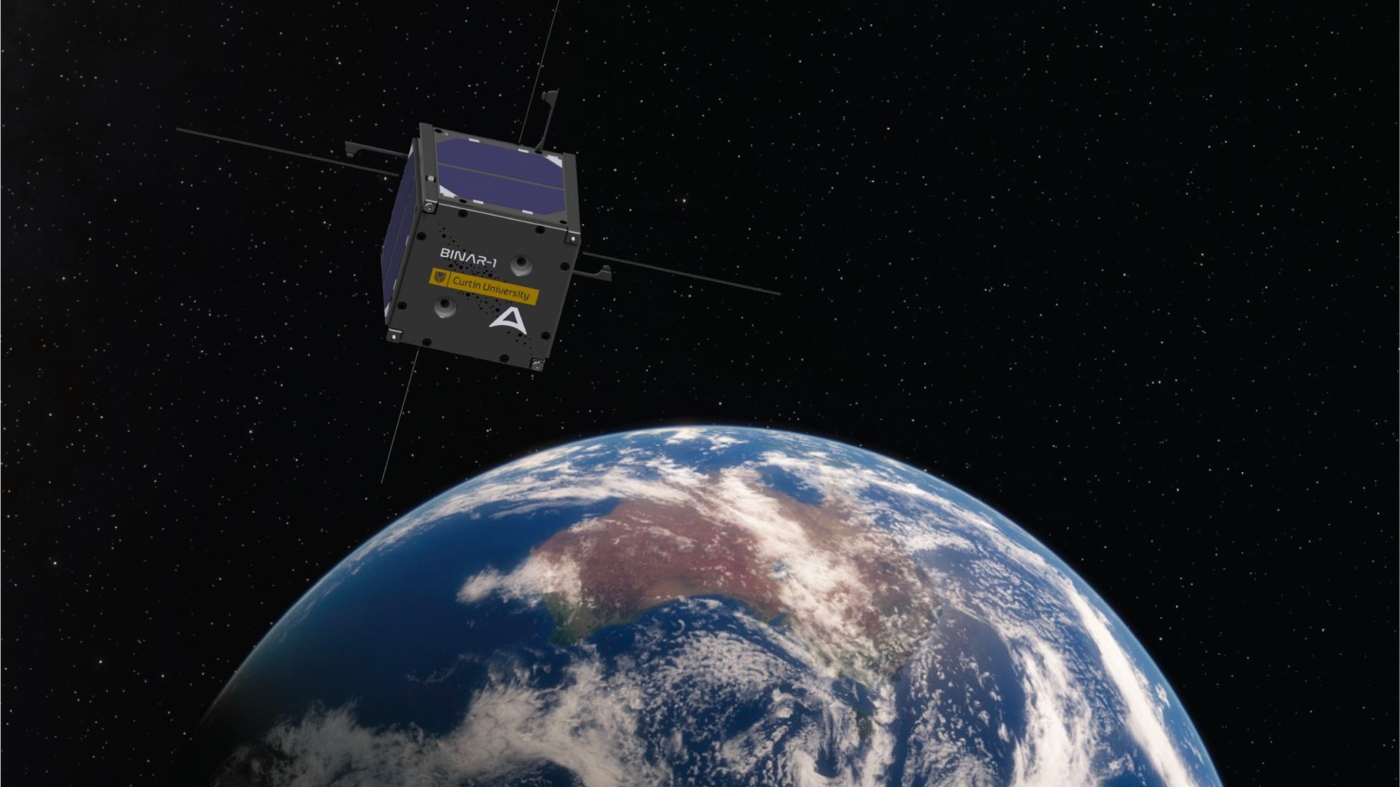Five miniature satellites scheduled for launch in the coming year, will be propelled into Space through the power of collaboration, as the Australian Remote Operations for Space and Earth (AROSE) consortium, signs an agreement to support Curtin University’s Binar Space Program.
The Binar Space Program (named from the Noongar word for fireball or shooting star) is a major initiative of Curtin’s Space Science Technology Centre (SSTC), with the Western Australian government announcing it will invest $500,000 in the program.
On announcing the state government’s funding, Innovation and ICT Minister Dave Kelly said:
“This new funding will support Curtin University’s mission to launch five Binar CubeSats to space, and cement WA’s position as the nation’s leader in the development and operation of CubeSats in space.”
As part of the Binar Program, researchers and students have designed and built the Binar CubeSat.
This miniature satellite is no bigger than a loaf of bread, and has been engineered to integrate all the satellite’s required systems on a single circuit board, about the size of a sandwich. This satellite bus is a first of its kind in Australia, making the Binar CubeSat an efficient and highly cost-effective solution for sending technology into Space.
AROSE will support the ongoing development of the Binar CubeSat by providing funding and industry-led engineering expertise through its consortium members, as part of the agreement signed with Curtin.
Five Binar CubeSats are scheduled to be launched to Space in 2021-2022, including Australia’s first homegrown satellite constellation, with ongoing experiments and testing of their remote capabilities to be conducted once they are in orbit.
“Being able to demonstrate that these CubeSats can be controlled and used remotely is of particular pertinence to AROSE and our vision for Australia’s remote operations and Space industries,” said AROSE CEO, Leanne Cunnold.
“Having cost-effective space technology solutions like the Binar CubeSats will open the doors for more businesses, especially small and medium sized businesses, to apply this technology to their own industries and reap the benefits of being able to remotely operate or monitor their day-to-day activities here on Earth.”
“Whether it’s being able to assess and act immediately on wear and tear of machinery parts and equipment operated in remote locations, or being able to track in real-time energy and resource usage data across processes and supply chains, there are many applications where Space technology like this can transform our industries, making them safer, cleaner, more reliable, effective and efficient.”
Ms Cunnold also noted the long-term importance and significance of the Binar Program, with funding provided by the State government also contributing to a dedicated Binar CubeSat STEM and outreach program, which will provide students with the opportunity to develop technology to be flown and operated in Space.
“The Binar Space Program will not only launch CubeSats to Space, it will also be a launching pad for Australia’s next generation of scientists and our future workforce “ Ms Cunnold said.
“AROSE is proud to collaborate with Curtin on the Binar Space Program and work towards an exciting future for Australia in remote operations and Space.”
To find out more about the Binar Space Program visit https://www.binarspace.com







